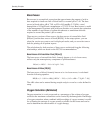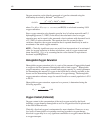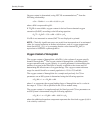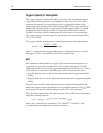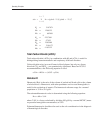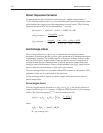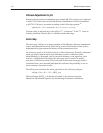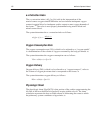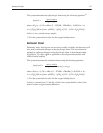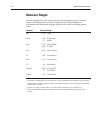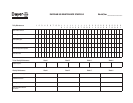
Operating Principles IĆ35
ArterialĆVenous (aĆv) Studies
When mixed venous blood gases from the pulmonary artery are combined with
arterial blood gas measurements, the results frequently clarify the cardiopulmonary
status and assist in determining appropriate therapeutic procedures to be initiated.
This section describes the parameters associated with a-v studies.
Arterial Oxygen Content
The oxygen content of arterial blood (ctO
2
(a)) is a determination of the total
oxygen carried by the arterial blood, including the oxygen bound to hemoglobin
and the oxygen dissolved in plasma and in the fluid within the red blood cells.
The system determines the oxygen content of arterial blood, based on NCCLS
recommendations
45
as follows:
ctO
2
(a) = (1.39 × ctHb × FO
2
Hb) + (0.00314 × pO
2
)
where 1.39 is the system default value for the oxygen binding factor.
Venous Oxygen Content
The oxygen content of venous blood (ctO
2
(v)) is a determination of the total
oxygen carried by the venous blood, including the oxygen bound to hemoglobin
and the oxygen dissolved in plasma and in the fluid within the red blood cells.
The system determines the oxygen content of venous blood, based on NCCLS
recommendations
45
as follows:
ctO
2
(v) = (1.39 × ctHb × FO
2
Hb) + (0.00314 × pO
2
)
where 1.39 is the system default value for the oxygen binding factor.
ArterialĆVenous Oxygen Content Difference
The arterial-venous oxygen content difference (ctO
2
(a-v)) refers to the oxygen
difference between arterial and venous blood. It is a determination of the amount
of oxygen released to the tissues per volume of blood.
46
When this result is obtained using a mixed venous sample, it is useful as an
indicator of changes in cardiac output and helps to assess the cardiac and metabolic
factors affecting arterial oxygenation.
47
The system determines the arterial-venous oxygen content difference as follows:
ctO
2
(a–v) = ctO
2
(a) – ctO
2
(v)



